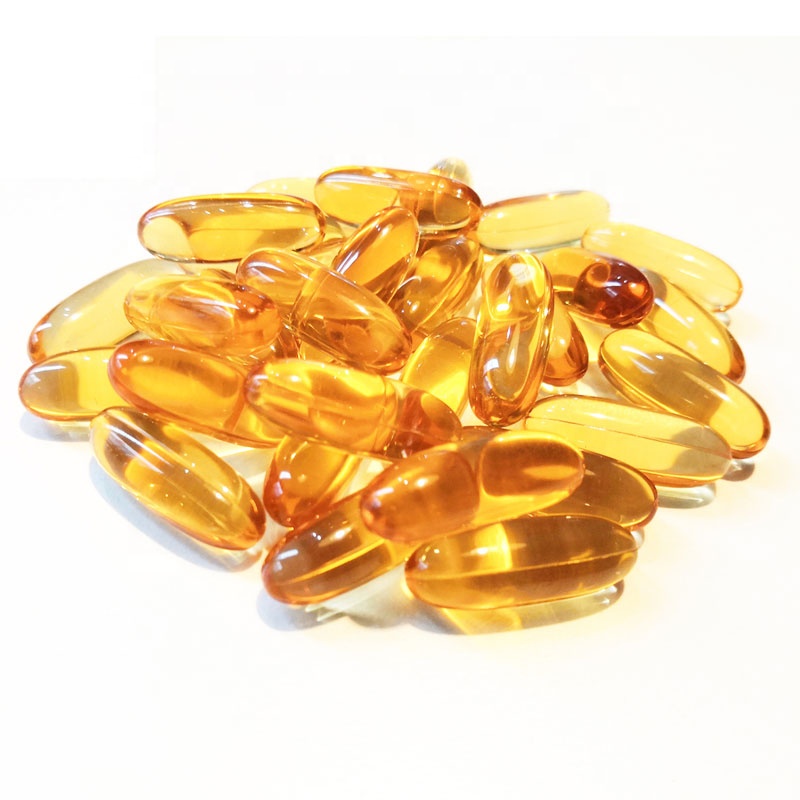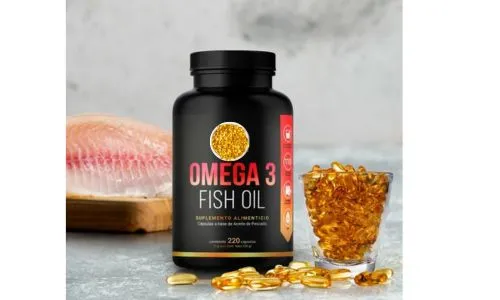How Eicosapentaenoic Acid Enhances Skin Health?
Eicosapentaenoic acid (EPA) is a powerful omega-3 fatty acid that has garnered significant attention in the skincare world. This remarkable compound, found abundantly in fish oil and certain algae, offers a myriad of benefits for skin health. In this comprehensive guide, we'll explore how EPA can transform your skin, diving deep into its anti-inflammatory properties, its potential in treating common skin conditions, and why it's considered a skin superfood.

Eicosapentaenoic Acid's Anti-inflammatory Effects on Skin
One of the most impressive attributes of EPA is its potent anti-inflammatory properties. Inflammation is at the root of many skin issues, from everyday redness and irritation to chronic conditions like rosacea. EPA works by inhibiting the production of pro-inflammatory substances in the body, effectively calming the skin from within.
When applied topically or consumed as a supplement, EPA can help reduce skin inflammation by:
- Decreasing the production of inflammatory cytokines
- Inhibiting the formation of prostaglandins, which are involved in the inflammatory response
- Promoting the resolution of inflammation through specialized pro-resolving mediators (SPMs)
This anti-inflammatory action not only soothes irritated skin but also helps prevent premature aging caused by chronic inflammation. By incorporating Vagen EPA into your skincare routine, you're providing your skin with a powerful tool to combat environmental stressors and maintain a healthy, youthful appearance.

Can Eicosapentaenoic Acid Help with Acne and Eczema?
The benefits of EPA extend beyond general skin health, showing promising results in managing specific skin conditions like acne and eczema. Let's delve into how this omega-3 fatty acid can make a difference:
EPA and Acne
Acne is often exacerbated by inflammation and excess sebum production. EPA's anti-inflammatory properties can help reduce the redness and swelling associated with acne breakouts. Moreover, studies have shown that EPA may help regulate sebum production, potentially reducing the occurrence of clogged pores that lead to acne. A study published in the journal "Lipids in Health and Disease" found that EPA supplementation led to a significant reduction in inflammatory and non-inflammatory acne lesions. This suggests that EPA could be a valuable addition to traditional acne treatments.
EPA and Eczema
Eczema, characterized by dry, itchy, and inflamed skin, can be a challenging condition to manage. EPA's ability to reduce inflammation and improve skin barrier function makes it a promising natural remedy for eczema sufferers.
Research has shown that EPA can help alleviate eczema symptoms by:
- Reducing inflammation and itching
- Improving skin hydration
- Strengthening the skin barrier to prevent moisture loss
A clinical trial published in the "British Journal of Dermatology" found that dietary supplementation with EPA led to significant improvements in eczema symptoms, including reduced itching and improved overall skin condition.

Why Eicosapentaenoic Acid is a Skin Superfood?
The term "superfood" is often overused, but when it comes to skin health, EPA truly deserves this title. Here's why EPA is considered a skin superfood:
Antioxidant Properties
EPA serves as a potent antioxidant, shielding the skin from free radical damage caused by UV rays, pollution, and other environmental stressors. Its antioxidant properties help combat premature aging, reducing the appearance of fine lines and wrinkles. By neutralizing harmful molecules, EPA helps maintain healthier, more youthful skin, preserving its smoothness and elasticity in the face of daily environmental challenges.
Moisture Retention
EPA plays a crucial role in maintaining the skin's lipid barrier, which is essential for retaining moisture. A well-hydrated skin appears plumper, smoother, and more radiant. By strengthening this barrier, EPA helps keep your skin hydrated and supple.
Collagen Production
Research suggests that EPA may stimulate collagen production in the skin. Collagen is the protein responsible for skin's elasticity and firmness. By promoting collagen synthesis, EPA can help maintain skin's youthful structure and reduce the appearance of aging.
Cellular Repair
EPA plays a key role in cellular repair, aiding in the regeneration of damaged skin cells. This promotes faster wound healing and supports a more even skin tone. By encouraging skin cell recovery, EPA helps improve the overall appearance and health of the skin, fostering a smoother, more balanced complexion.
UV Protection
While not a substitute for sunscreen, EPA has been shown to offer some protection against UV-induced damage. It can help reduce the skin's sensitivity to sunburn and may prevent some of the long-term damage caused by UV exposure.
Incorporating EPA into your skincare routine, either through topical applications or dietary supplements, can provide your skin with a powerful ally in maintaining health, combating aging, and addressing specific skin concerns. As with any new supplement or skincare product, it's always best to consult with a healthcare professional before starting, especially if you have existing skin conditions or are taking medications.

Conclusion
Eicosapentaenoic acid is a remarkable compound that offers numerous benefits for skin health. From its potent anti-inflammatory properties to its ability to hydrate and protect, EPA truly is a skin superfood. Whether you're looking to combat acne, soothe eczema, or simply maintain healthy, youthful-looking skin, incorporating EPA into your skincare regimen could be a game-changer.
At Yangge Biotech Co., Ltd., we're passionate about harnessing the power of natural plant extracts like EPA to create innovative, high-quality solutions for the food, beverage, and dietary supplement industries. If you're interested in learning more about how EPA and other natural extracts can enhance your products, we'd love to hear from you. Contact us at info@yanggebiotech.com to discover how we can help you create standout products that meet the growing demand for natural, effective ingredients.
References
1. Khayef G, Young J, Burns-Whitmore B, Spalding T. Effects of fish oil supplementation on inflammatory acne. Lipids Health Dis. 2012;11:165.
2. Koch C, Dölle S, Metzger M, et al. Docosahexaenoic acid (DHA) supplementation in atopic eczema: a randomized, double-blind, controlled trial. Br J Dermatol. 2008;158(4):786-792.
3. Pilkington SM, Rhodes LE, Al-Aasswad NM, Massey KA, Nicolaou A. Impact of EPA ingestion on COX- and LOX-mediated eicosanoid synthesis in skin with and without a pro-inflammatory UVR challenge--report of a randomised controlled study in humans. Mol Nutr Food Res. 2014;58(3):580-590.
4. Bhatt DL, Steg PG, Miller M, et al. Cardiovascular Risk Reduction with Icosapent Ethyl for Hypertriglyceridemia. N Engl J Med. 2019;380(1):11-22.
5. Borghini A, Cervelli R, Galli G, Andreassi MG. DNA modifications in atherosclerosis: from the past to the future. Atherosclerosis. 2013;230(2):202-209.

Based on your location and order quantity, you will have the opportunity to receive a limited time free shipping promotion!

Who we are


